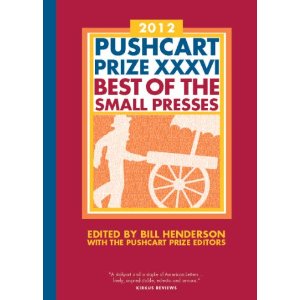 Today we’re proud to feature Elizabeth Frankie Rollins as our eighth Authors Talk series contributor, talking about allowing writing to take its own rightful shape in her podcast “The Work.”
Today we’re proud to feature Elizabeth Frankie Rollins as our eighth Authors Talk series contributor, talking about allowing writing to take its own rightful shape in her podcast “The Work.”
A writer’s work becomes a living, demanding entity in this podcast. According to Frankie, it ignores its writer’s whining, and doesn’t care much about the desire for companionable readers either. In five well-crafted minutes, she describes first “refusing to listen to something I didn’t want to hear,” then her eventual realization that each work has its own demands, regardless of the writer’s desires.
Frankie creates a place in her podcast where the writing itself is an active, though silent, participant in its creation. Here, “the work finds its true nature without the ego of the writer mucking up the process.” Here, “the work dictates what it needs, and you must comply.”
You can listen to the podcast on our iTunes Channel.
You can read Elizabeth Frankie Rollins’ story “The Ruins” in Superstition Review, Issue 9.
More About the Author:
Elizabeth Frankie Rollins has a collection of short fiction, The Sin Eater & Other Stories (Queen’s Ferry Press, 2013). Also, she has work in The Fairy Tale Review, Sonora Review, Conjunctions, Superstition Review, and The New England Review, among others. Rollins has received a Pushcart Prize Special Mention, and won a Prose Fellowship from the New Jersey Arts Council. She teaches fiction and composition writing at Pima Community College in Tucson.
About the Authors Talk series:
For several years, we have featured audio or video of Superstition Review contributors reading their work. We’re now establishing a new series of podcasts called Authors Talk. The podcasts in this series take a broader scope and feature SR contributors discussing their own thoughts on writing, the creative process, and anything else they may want to share with listeners.

